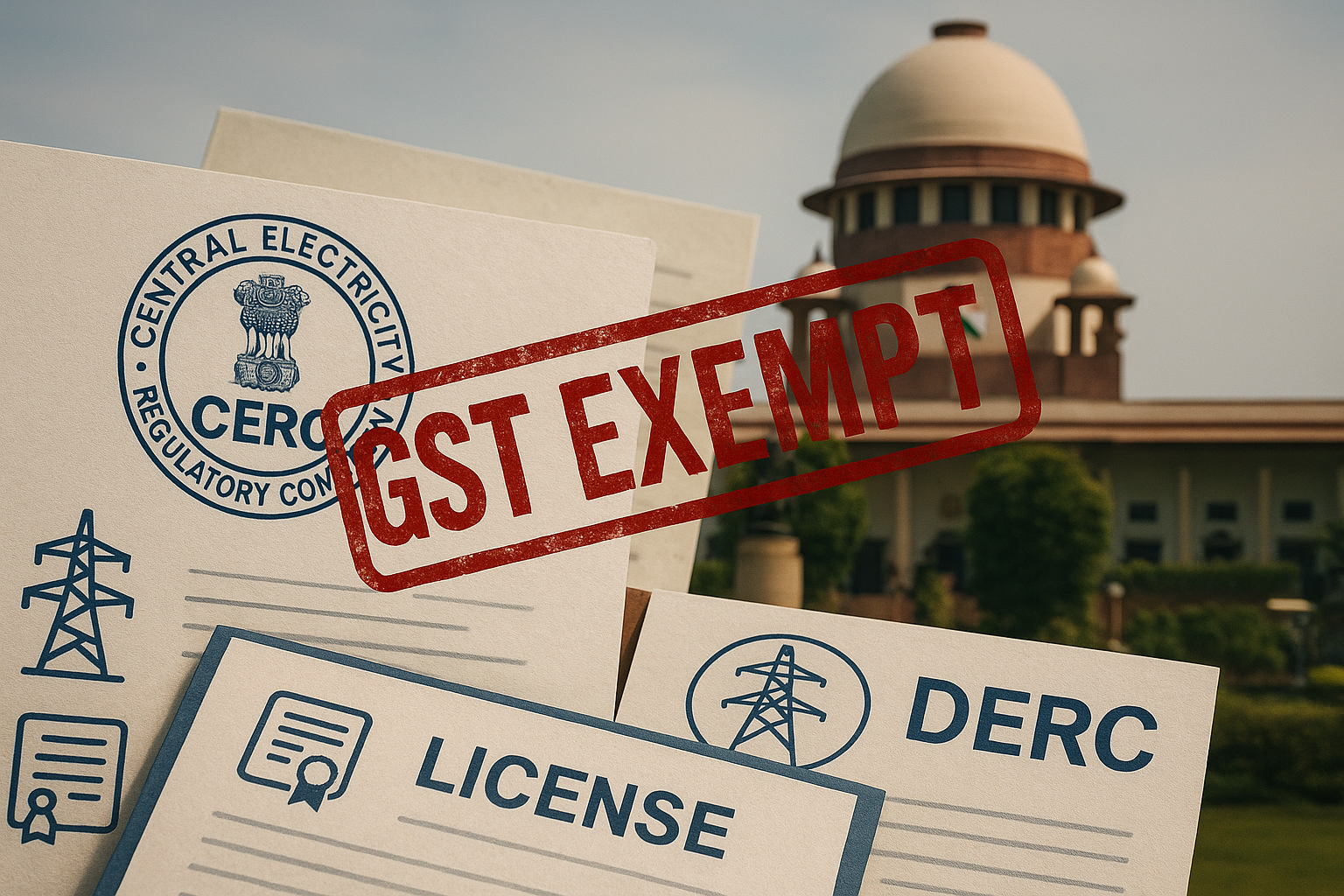In a key judgment on July 23, 2025, the Supreme Court of India dismissed the Special Leave Petition (SLP) filed by the Directorate General of GST Intelligence (DGGI), affirming the Delhi High Court’s ruling that license fees collected by regulatory bodies such as the Central Electricity Regulatory Commission (CERC) and Delhi Electricity Regulatory Commission (DERC) are not liable for GST.
Court’s Findings & Rationale
-
The Supreme Court agreed that electricity commissions perform statutory and quasi‑judicial functions—closely akin to a tribunal—not enlisted activities in “business” under GST law.
-
As per the Delhi HC and affirmed by the SC, charging license fees for electricity distribution licenses, tariff regulation, and annual fees is part of their statutory mandate—not a commercial service. Therefore, they fall under Schedule III exclusion, which explicitly exempts services by courts or tribunals from GST.
-
The ruling invalidated earlier GST show-cause notices totaling ₹112+ crore, which had erroneously classified these fees under SAC 998631 (“support services”).
Context & Case Background
-
In January 2025, the Delhi High Court quashed tax demands issued to CERC and DERC, finding them arbitrary and unconstitutional since the regulatory powers were exercised as statutory obligations.
-
The Court emphasized that no inducement or contractual consideration element supports labeling the fees as taxable “service.” Instead, these charges facilitate regulation—not commerce.
Implications & Significance
For Regulatory Commissions
-
Provides legal clarity and finality: regulatory bodies can continue collecting statutory fees without GST liability, reinforcing their operational autonomy.
For GST Authorities
-
Clarifies that statutory regulatory functions—especially license-related roles—fall outside taxable supply, even if fees are collected.
-
Reinforces that broad GST notifications cannot override statutory exemptions in Schedule III.
For Stakeholders & Power Utilities
-
Licensees and electricity entities benefit from cost predictability with no GST added to regulatory charges.
-
Ensures that regulatory compliance remains cost-effective and government-mandated.
For Legal & Tax Practitioners
-
Confirms judicial consensus distinguishing sovereign/statutory functions from commercial activities under tax law.
-
Strengthens jurisprudence on the interpretation of terms like “business,” “supply of service,” and “consideration” under the CGST Act.
Conclusion
The Supreme Court’s dismissal of the SLP and endorsement of the Delhi High Court’s decision ends ambiguity over GST applicability on license fees collected by CERC and DERC. This ruling sets a strong precedent for the GST treatment of statutory bodies performing regulatory or quasi‑judicial functions, affirming their exemption from tax and reinforcing the boundaries between public duties and taxable services.












